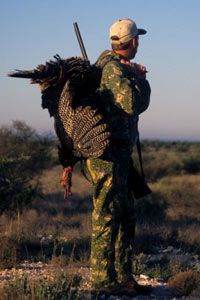Hunting is a sport that involves killing, which automatically makes it controversial. Now add in all the hunting methods from which sportsmen can choose, and the debate gets even more complicated. Advocates base their arguments on the conservation benefits that hunting provides, but that doesn't mean they believe every hunting method is good. There are certain hunting practices that rights groups such as the National Rifle Association and everyday hunters oppose.
Many hunters have gone to great lengths to make the sport as ethical and honorable as possible. A popular view is to follow the Fair Chase ideals, which present a code of ethics for hunters to utilize. This code works to ensure that hunters don't use any means that give them an unfair advantage over the animals. The prey should have a fair chance to escape in defense. From here, you could generalize that any approach to hunting that doesn't meet these standards is both unethical and unfair. However, this generalization means little to someone who doesn't believe in Fair Chase. Because of that, there are many forms of hunting that don't follow that code of ethics.
Advertisement
Throughout this article, we'll look at a few specific forms of hunting that have been deemed unfair by popular opinion. These practices involve killing trapped, enclosed or baited animals, or hunting by any illegal means. Read on to learn about the different hunting techniques that walk a fine line between fair and unfair.



